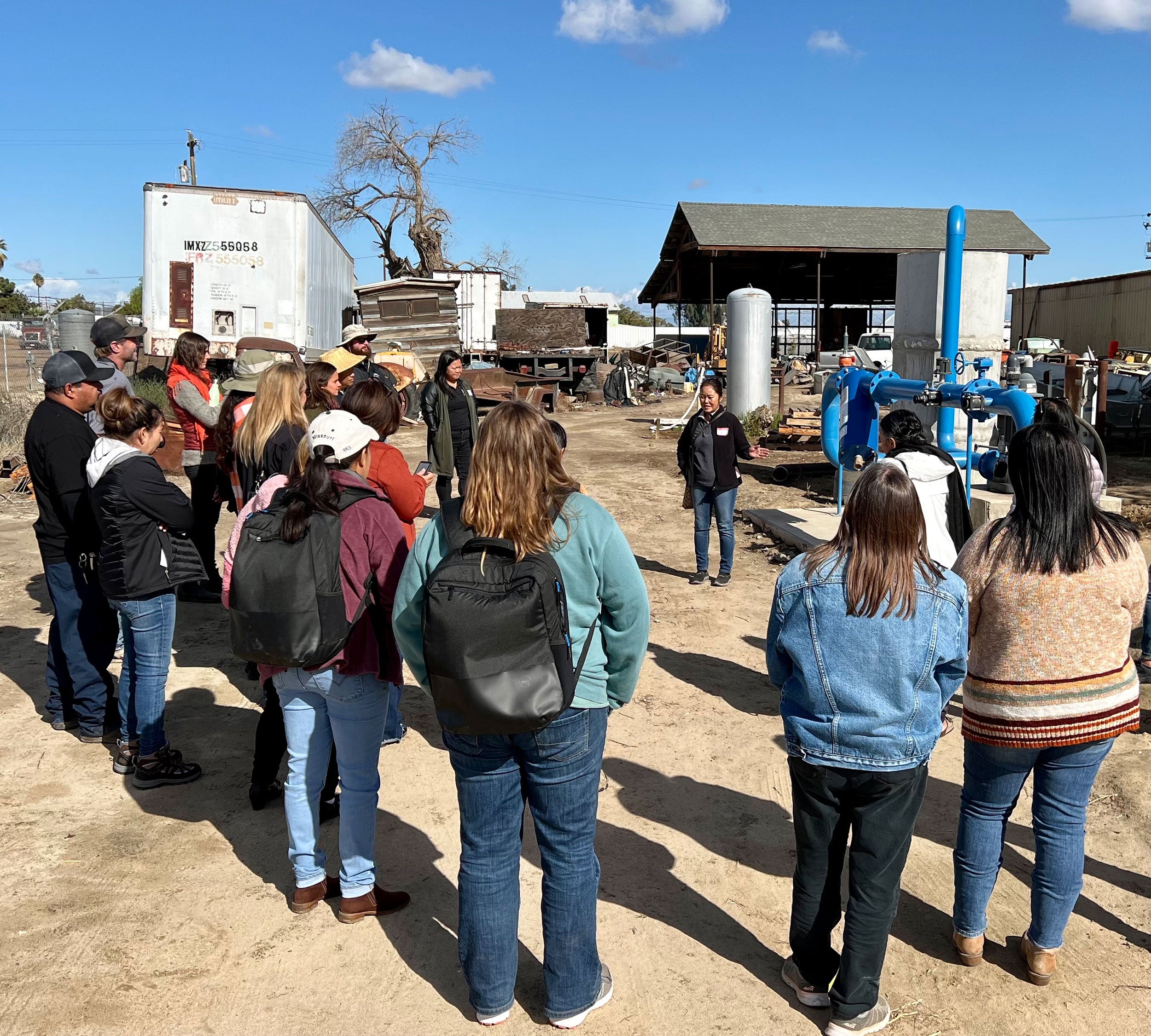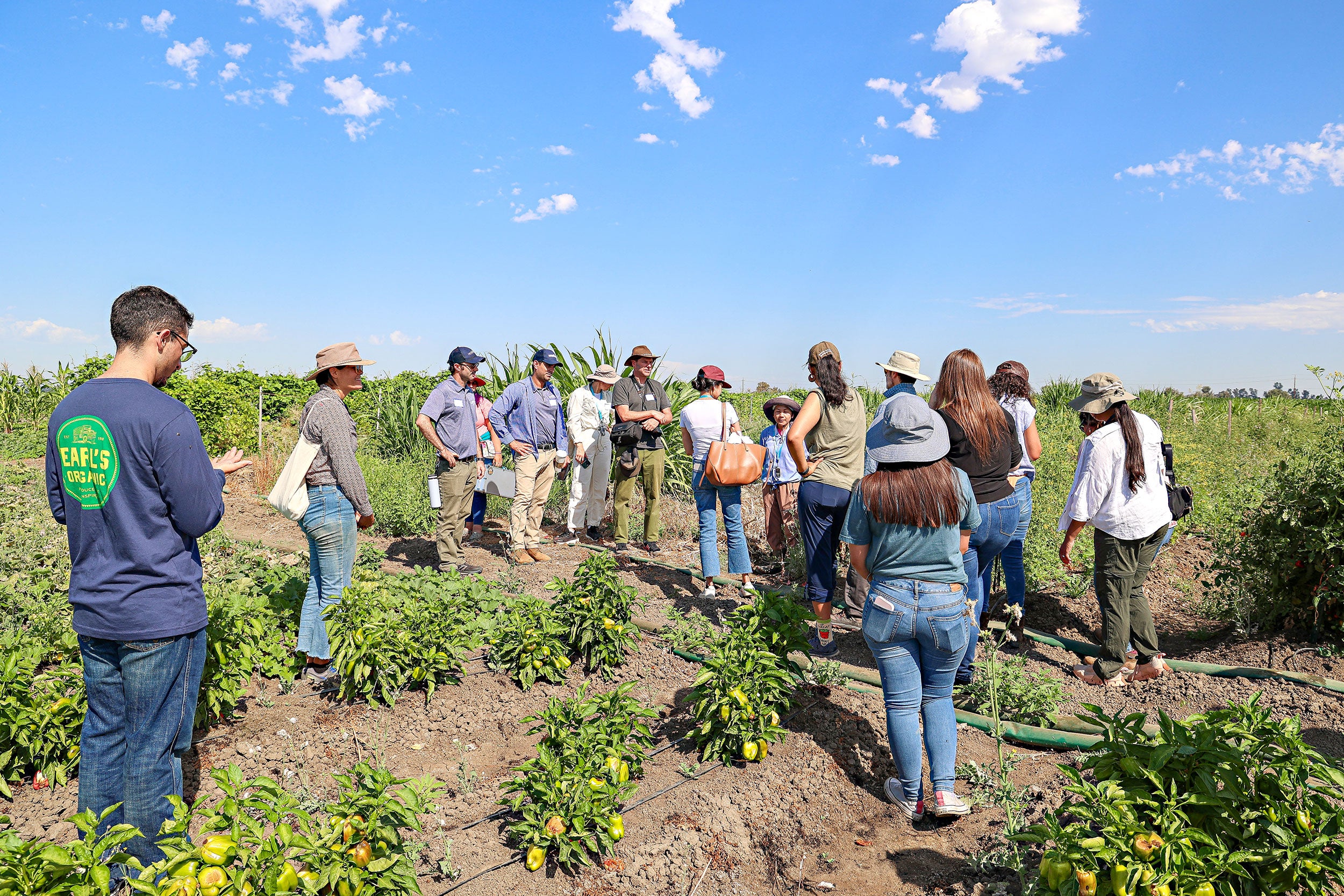American Farmland Trust provides technical support and financial resources to underserved farming communities in California
California’s agricultural landscape is as diverse as its population, yet many underserved farming communities — including women, LGBTQIA+, Native American, Hmong, Latino, and Punjabi farmers — face significant barriers to success. American Farmland Trust is working hard to address these challenges by providing technical support and financial resources tailored to their needs.
This approach throughout key areas in the San Joaquin Valley and Central Coast shows a commitment to engaging directly with farmers in meaningful and impactful ways. It also is rooted in understanding the unique needs of these communities.
“We meet them not just geographically but also in terms of accessibility to technology and language,” explained Deborah Nares, AFT’s California Senior Manager.
Instead of simply translating materials, AFT provides bilingual staff, multi-language radio programs, resource fairs, and farm tailgate events to ensure that information is both accessible and culturally relevant.
AFT has four Spanish-speaking staff members already serving the Latino farming community, and partners with local community organizations to support Southeast Asian farmers with workshops and Hmong radio programming. Nares noted that “meeting them in their language and in their proximity is key to building trust and delivering impactful support.”

Too often, many service providers, agencies, and lenders fail to invest in staff who represent these communities. This lack of representation leaves many farmers unable to access critical support and funding opportunities.
“Having bilingual staff from the Latino community working with farmers should be the standard and not the exception in any organization engaging California agriculture,” Nares said.
To help these farmers with their climate resilience and business viability, AFT is advancing policy solutions, performing on-farm research, and providing field-based support that collectively reinforces and advances proven solutions at scale. For example, AFT is building a library of case studies that highlights the benefits of regenerative agriculture. These case studies focus on all size farms, including small-scale farmers from underserved communities. AFT wants to accelerate regenerative agricultural practices by celebrating the economic gains, as well as the environmental benefits.
“We’re showing that if you farm regeneratively, it’s not just good for the environment. You’re often going to have better economic gains, higher yields, reduced inputs and increased profits. AFT documents these results to help farmers and agricultural service providers benefit from these observations,” Nares said.
These resources, translated into Spanish, are now available at events and online, to broaden their reach with farming communities who may not have access to this technical information. AFT hopes farmers will be inspired by the results being recorded.
For instance, Vicky Garcia-Moya, a small-scale almond farmer in Madera County, adopted regenerative practices such as cover crops, composting, mulching, and nutrient management on her 29-acre farm. These methods led to a 10 percent increase in almond yield, adding $309 per acre in revenue. By cutting back on herbicides, insecticides, and water usage, she saved $115 per acre annually.
Even with a $140 per-acre cost increase, Garcia-Moya’s net benefit totaled $284 per acre per year, proving the financial sustainability of her efforts.
Balbir Singh, a table grape farmer in Tulare County originally from India, has seen good results implementing practices like cover crops, compost applications, and nutrient management on his 315-acre farm. These changes resulted in a 5 percent increase in grape yield, adding $550 per acre in revenue.
By reducing herbicides, insecticides, and water use, Balbir saved an additional $185 per acre annually. Together, these practices brought him a significant net economic benefit, while also improving soil health and reducing greenhouse gas emissions.
Navigating funding opportunities to implement these regenerative agricultural practices remains a significant challenge for many farmers. With technical and financial assistance from the USDA-NRCS and other partners, AFT has provided more than $4 million to hundreds of producers implementing irrigation management, cover crops, compost, mulching, biochar and other practices. Many of these farmers were underserved. Since 2020, AFT and partners have also awarded $4.5 million to more than 400 farmers and ranchers nationwide, who identify as BIPOC, LGBTQ+, female, or beginning through the Brighter Future Fund.

With financial support from Daily Harvest, AFT is partnering with California Certified Organic Farmers (CCOF) to help underserved farmers in Central California and San Joaquin Valley offset costs related to transitioning to organic practices. The program has awarded 30 $10 thousand grants to small farmers, which supported the transition of more than 190 acres. The team also conducted 23 community-based outreach events, engaging over 270 farmers and 130+ technical assistance providers.
“It’s that technical assistance that guides farmers through the transition, which is a critical part of the program’s success,” said Teresa O’Connor, California Communications and Outreach Manager at AFT.
Recognizing farmers’ time constraints and need for financial support to implement these agricultural practices, AFT acts as a critical link between farmers and funding programs. They develop tools and written resources that help farmers apply for these programs and build local capacity with Regional Conservation Districts and other organizations.
AFT has developed a centralized funding chart that lists available grant programs — such as the Regional Conservation Partnership Program and other government funding opportunities that help farmers invest in these new regenerative practices.
O’Connor highlighted the importance of this tool, noting, “The deadlines are always changing, but we hope having a convenient place to see many different funding opportunities is going to be a game-changer for farmers.”
Because of the scope and scale of the challenges so many farmers face, Nares emphasized the need for systemic change.
“One reason why folks are underserved is that government programs aren’t investing enough in their staff to come from these communities and provide support for these farmers,” she said. “That needs to change if we want to see real progress.”
By hiring bilingual staff and encouraging representation within agricultural agencies, these organizations can bridge communication gaps and ensure fair access to resources.
As AFT moves forward, its focus remains on providing resources and advocating for systemic change. Through financial assistance, culturally relevant support, and partnerships that amplify its reach, AFT is making strides toward a more inclusive and sustainable agricultural future in California.
“We’re taking a multi-pronged approach because we know no two farmers are the same,” O’Connor said. “They may be too busy for a farm workshop, so a Spanish-language radio show might work better. Meeting them and learning their needs is how we can make the biggest difference.”
This article was funded by and published on behalf of American Farmland Trust.
David Salazar served as the 2024 American Farmland Trust Agriculture Communications Intern at AGDAILY, with a focus on helping to amplify diversity and minority voices in agriculture. David is originally from King City, California, and attended the University of California, Fresno, as a first-generation college student. He received a bachelor’s degree in viticulture and enology and has worked in California’s premier wine producing regions.




